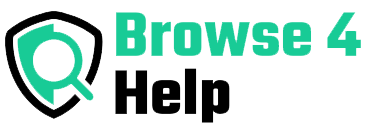Best Free Academic Search Tools for Curious Learners
If you’re a student, content creator, or lifelong learner, you’ve probably needed a research article at some point. And let’s be honest Google Scholar, while helpful, isn’t the only place to find academic content. In fact, some tools go even further, offering better access, more open-access papers, or unique collections.
So today, we’re diving deep into Free Academic Search Tools you can use without Google Scholar. Whether you’re a tech enthusiast, young researcher, or just trying to write a blog or school essay backed by solid evidence, this guide is for you.
Why Look Beyond Google Scholar?
Google Scholar is a giant in the academic world but it’s not perfect. Here’s why you might want alternatives:
| Reason | What It Means |
|---|---|
| Limited Access | Many results link to paywalled content. |
| Lack of Advanced Filters | Narrowing down to peer-reviewed or recent research is hard. |
| Inconsistent Indexing | Not all scholarly databases are included. |
| Algorithmic Bias | Google ranks pages for relevance, not academic quality. |
So, for those seeking free academic articles, better filtering, and deeper access to open data, it’s smart to explore other tools.
Real-Life Scenario: Why This Matters
Imagine you’re building a startup focused on climate tech. You want to back your product claims with real data from researchers. You search Google but all the good articles are locked behind paywalls.
That’s where free academic search tools step in.
These tools don’t just save you money they save time, boost credibility, and give you real insights that fuel smart decisions.
The Best Free Academic Search Tools (No Google Scholar Needed)
Below is a curated list of the top free academic search tools—many of which are underused but powerful:
1. CORE (core.ac.uk)
Best For: Open-access full-text research papers
CORE aggregates open-access content from over 10,000 data providers—including universities and repositories.
Key Features:
-
Access over 280 million research papers.
-
Full-text download available.
-
Great for students & startups needing scientific backing.
Pro Tip: Use CORE’s advanced search for filtering by language, year, and source.
2. Semantic Scholar (semanticscholar.org)
Best For: AI-powered, tech-savvy researchers
Developed by the Allen Institute for AI, Semantic Scholar offers AI-enhanced summaries, citation graphs, and relevance scoring.
Key Features:
-
Clean interface with smart filters.
-
AI-generated abstracts help you scan faster.
-
Strong in computer science, medicine, and biology.
Bonus: It even flags important papers in your field.
3. PubMed (pubmed.ncbi.nlm.nih.gov)
Best For: Health, biology, medicine-related research
PubMed is a free database maintained by the U.S. National Library of Medicine. It contains over 35 million citations from MEDLINE, life science journals, and online books.
Key Features:
-
Highly trusted in academic and health communities.
-
Easy filtering for review articles or clinical studies.
-
Strong metadata and citation tools.
Example Use: Need to know if a supplement really works? PubMed has peer-reviewed trials on it.
4. Directory of Open Access Journals (doaj.org)
Best For: Humanities, economics, social sciences, and niche fields
DOAJ is a treasure trove for open-access scholarly journals in dozens of languages and topics.
Key Features:
-
No paywalls. All journals are freely accessible.
-
Covers law, sociology, political science, arts, etc.
-
Search by journal, subject, or author.
Real-World Relevance: Perfect for creators or marketers researching consumer behavior or cultural trends.
5. ERIC (eric.ed.gov)
Best For: Education and policy-related research
Sponsored by the U.S. Department of Education, ERIC offers access to thousands of education-focused studies, curriculum guides, and reports.
Key Features:
-
Trusted for education research and academic policy.
-
Advanced filters for publication type and level.
-
Includes both peer-reviewed and practitioner-based articles.
Example: Writing a blog on homeschooling or online learning? ERIC is gold.
6. OpenAIRE (explore.openaire.eu)
Best For: European research and funding-backed studies
OpenAIRE is backed by the EU and connects you to datasets, publications, and research projects.
Key Features:
-
Includes datasets for data analysis or AI training.
-
Links to Horizon Europe projects.
-
Strong search filters and API access for developers.
Use Case: Entrepreneurs building data-driven platforms can extract useful public datasets.
7. ResearchGate (researchgate.net)
Best For: Direct communication with researchers
While not all content is free, many authors upload full-text versions. You can also message authors directly for permission.
Key Features:
-
Community-driven.
-
Profiles of researchers, including publications, questions, and collaborations.
-
Great for networking in academic fields.
Tip: Politely request a paper via DM if it’s locked.
Comparison Table: Top Free Academic Search Tools
| Tool | Best For | Free Full-Text | Filters | Bonus Feature |
|---|---|---|---|---|
| CORE | General research | ✅ | ✅ | 280M+ papers |
| Semantic Scholar | AI & science-focused | ✅ | ✅ | AI summaries & citation maps |
| PubMed | Health & medicine | ✅ | ✅ | Clinical trials & reviews |
| DOAJ | Humanities & social sciences | ✅ | ✅ | 15,000+ journals |
| ERIC | Education & pedagogy | ✅ | ✅ | Policy-level research access |
| OpenAIRE | European & data-rich studies | ✅ | ✅ | Dataset + project integration |
| ResearchGate | Direct author access | ⚠️ Partially | ✅ | Author messaging + discussions |
Bonus Tips: How to Make the Most of These Tools
-
Use Boolean Search Operators
-
"climate change"AND “startups” -
"artificial intelligence"NOT “robots”
-
-
Look for PDF Icons
-
Many tools label articles with downloadable full-text PDFs.
-
-
Set Up Alerts
-
Tools like Semantic Scholar and CORE let you get notified about new research in your area.
-
-
Install Browser Extensions
-
Extensions like Unpaywall automatically show you legal free versions of paywalled articles.
-
Personal Insight: What I’ve Learned Using These Tools
As a content strategist working in tech and education, I often need to pull credible sources for blog posts, marketing copy, or case studies. I used to rely only on Google Scholar, but the paywalls were frustrating.
Using DOAJ and CORE, I’ve found free articles that helped me:
-
Write high-authority blog posts for SEO.
-
Back marketing claims with real research.
-
Stay updated on trends like neuromarketing or remote learning.
And the best part? It’s 100% free and legal.
FAQs: Free Academic Search Tools
Q: Are these tools legal to use?
✅ Yes. All listed platforms offer open-access or government-funded resources—completely legal.
Q: Do I need an academic email to access them?
No academic email needed. Most are open to the public.
Q: Can I use these for high school or college assignments?
Absolutely! These tools are perfect for students, educators, and writers at all levels.
Q: What if the article is still paywalled?
Use Unpaywall, ResearchGate, or even contact the author directly via email or LinkedIn.
Knowledge Shouldn’t Be Locked
In a world where access to information often comes with a price tag, free academic search tools level the playing field. Whether you’re writing a report, validating your startup’s pitch, or just exploring new ideas, these resources empower you to dig deeper, learn smarter, and create better.
So next time you’re stuck behind a paywall or frustrated by Google Scholar’s limits, try one of these platforms. Bookmark this guide and come back whenever you need a credible source minus the fees.



